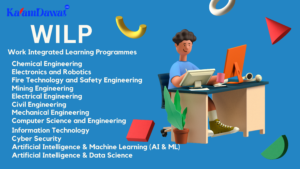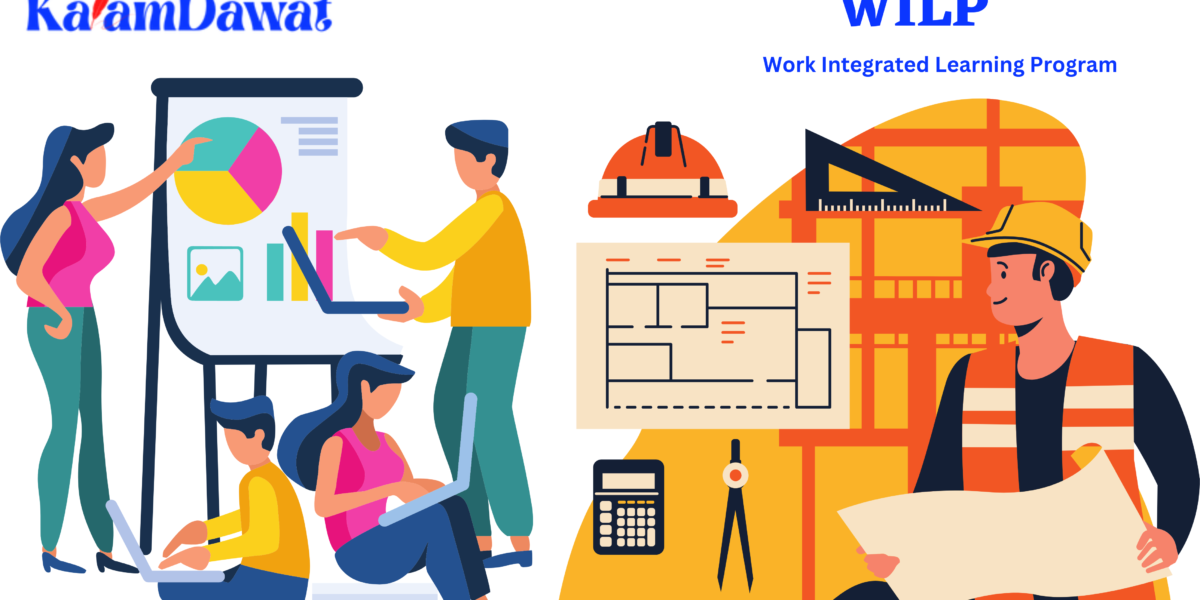Work Integrated Learning Program (WILP) is an educational approach that combines academic learning with practical work experience. WILP is designed to provide students with an opportunity to apply theoretical knowledge in real-world settings, gain relevant work experience, and develop professional skills that are highly valued by employers.
This comprehensive overview of WILP provides an in-depth understanding of the purpose, benefits, and implementation of WILP for both students and employers. The guide covers various aspects of WILP, including the different types of programs available, their benefits, and the ways in which they can be implemented to enhance student learning outcomes and meet the needs of employers.
Whether you are a student looking to gain practical work experience, or an employer seeking to engage with emerging talent, this guide will provide you with a comprehensive overview of WILP and its potential benefits for both students and employers. By understanding the key concepts and best practices of WILP, you can make informed decisions about how to incorporate this approach into your educational or hiring strategies

WILP is a broad term that encompasses various types of experiential learning, including co-operative education, internships, service learning, and apprenticeships. These programs are typically structured in a way that allows students to alternate between periods of academic learning and work experience. For example, a co-operative education program may involve students working in their field of study for a set period of time, then returning to the classroom to apply what they have learned to their coursework.
WILP programs can benefit both students and employers in several ways. For students, WILP provides an opportunity to gain practical work experience, develop professional skills, and build a professional network that can lead to future job opportunities. This type of experience can be particularly valuable for students who are transitioning from academic settings to the workforce. For employers, WILP programs can provide access to a pool of talented students who are up-to-date with the latest industry trends and have relevant work experience.
Implementing a successful WILP program requires careful planning and collaboration between educational institutions and employers. Best practices for implementing WILP include establishing clear learning objectives, providing adequate training and support for students and employers, ensuring effective communication between all parties involved, and assessing and evaluating the program to measure its effectiveness.
In conclusion, Work Integrated Learning Program is an effective way to bridge the gap between academic learning and real-world work experience. By providing students with opportunities to gain practical work experience and develop professional skills, WILP can enhance their career readiness and provide employers with access to a pool of talented and highly skilled graduates.
WILP In India.
Work Integrated Learning Programs (WILP) are becoming increasingly popular in India as they provide students with practical work experience and enhance their employability. Many universities in India offer WILP programs across various fields of study. Here are some of the prominent universities in India that offer WILP programs:
- Birla Institute of Technology and Science (BITS), Pilani
- Mangalayatan University
- Shree Venkateshwara University
- Lingaya’s Vidyapeeth.
- Mewar University.
These universities offer WILP programs in various fields of study, including engineering, business, health sciences, and computer science. These programs provide students with practical work experience, professional skills development, and access to a network of industry professionals.
In conclusion, there are many universities in India that offer Work Integrated Learning Programs (WILP). These programs provide students with valuable practical work experience and enhance their employability, making them an excellent choice for students who want to combine academic learning with real-world work experience.

Work Integrated Learning Programs (WILP) for Technical Courses in India
Work Integrated Learning Programs (WILP) are becoming increasingly popular in India, especially in the technical field, as they provide students with practical work experience and enhance their employability. Many universities in India offer WILP programs across various technical courses. Here are some of the prominent technical courses for which WILP programs are offered in India:
- Bachelor of Technology (B.Tech) – Computer Science Engineering, Mechanical Engineering, Electronics and Communication Engineering, Electrical and Electronics Engineering, Civil Engineering, etc.
- Master of Technology (M.Tech) – Computer Science Engineering, Mechanical Engineering, Electronics and Communication Engineering, Electrical and Electronics Engineering, Civil Engineering, etc.
- Master of Computer Applications (MCA)
- Master of Science (M.Sc) – Information Technology, Data Science, Cyber Security, etc.
- Bachelor of Science (B.Sc) – Information Technology, Computer Science, etc.
Many universities and institutes in India offer WILP programs in these technical courses, such as Manipal Academy of Higher Education (MAHE), Birla Institute of Technology and Science (BITS), Pilani, Vellore Institute of Technology (VIT), and many more. These programs provide students with practical work experience, professional skills development, and access to a network of industry professionals.
In conclusion, Work Integrated Learning Programs (WILP) are an excellent choice for students who want to gain practical work experience and enhance their employability in technical fields. With many universities and institutes offering WILP programs in various technical courses, students can choose the course that best aligns with their interests and career aspirations.

Benefits of Work Integrated Learning Programs (WILP)
Work Integrated Learning Programs (WILP) provide a range of benefits to learners by equipping them with technical, practical, and academic skills. Here are some of the key benefits of WILP:
- Equipping learners with technical and academic skills: WILP programs provide learners with the opportunity to gain practical, hands-on experience in their chosen field of study, allowing them to develop technical skills and knowledge that are relevant to their future careers. In addition, learners benefit from traditional classroom learning, which provides them with a strong academic foundation.
- Enhancing critical thinking and problem-solving skills: WILP programs offer learners the chance to engage in experimental learning pedagogy, which involves learning through experience. This approach to learning helps to enhance critical thinking, analytical skills, and problem-solving ability, which are essential skills for success in the workplace.
- Broadening career perspectives: WILP programs provide learners with opportunities to broaden their career perspectives through professional work placement, practicum, internship or project-based learning. This allows them to gain exposure to different industries and work environments, and to build a network of contacts that can help them to advance their careers.
- Enhancing awareness of global challenges and industry issues: WILP programs often involve strong partnerships with leading and local organizations, giving learners exposure to global challenges and industry issues. This helps to broaden their understanding of the wider world and the role that they can play in shaping it.
In conclusion, Work Integrated Learning Programs (WILP) offer learners a range of benefits, including equipping them with technical and academic skills, enhancing critical thinking and problem-solving abilities, broadening career perspectives, and enhancing awareness of global challenges and industry issues.

